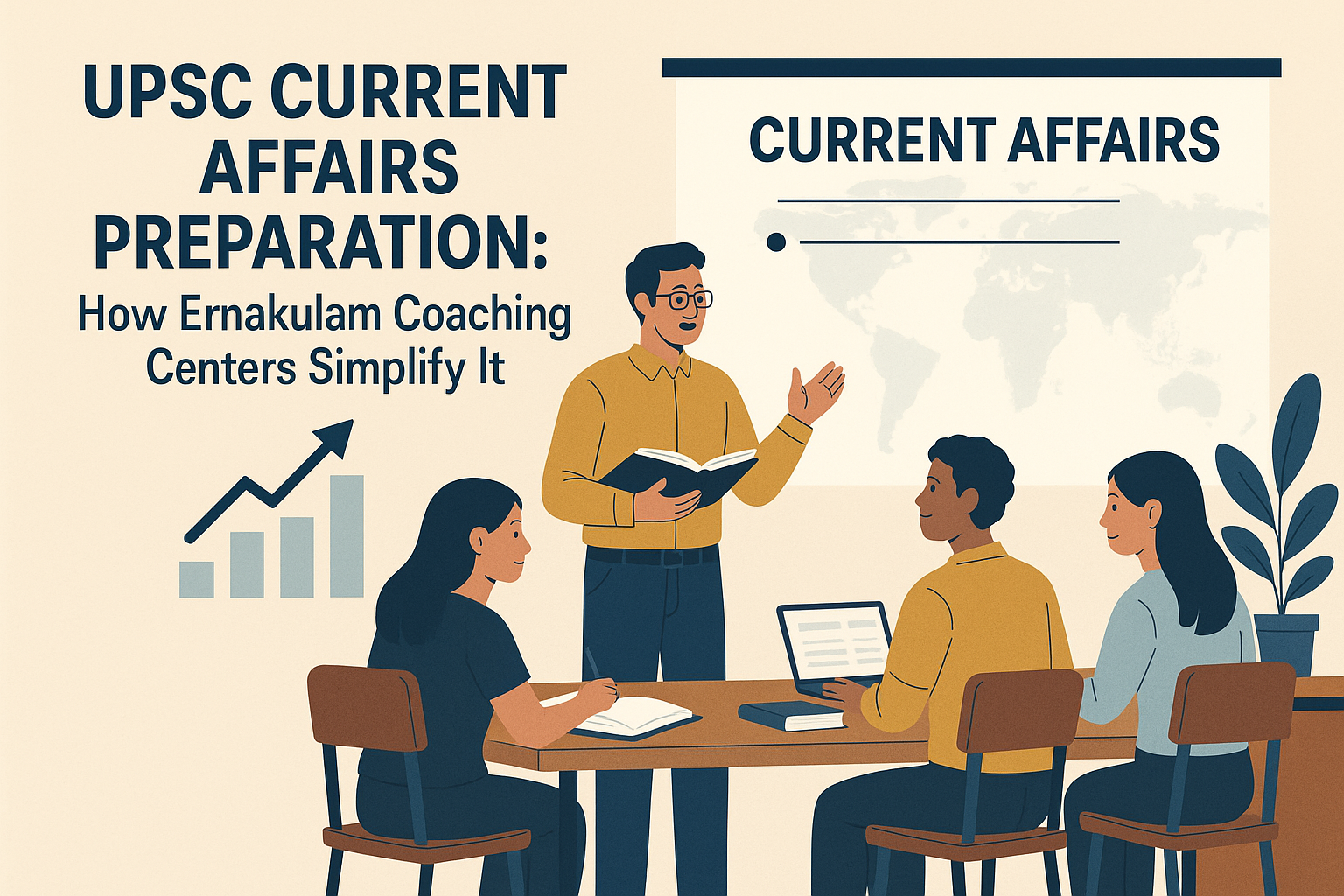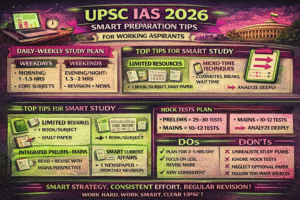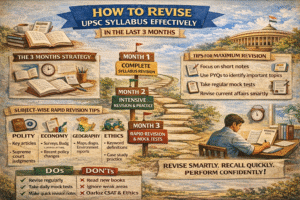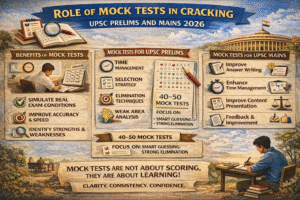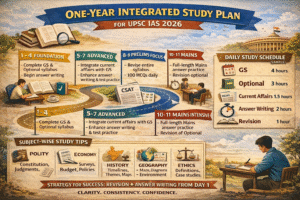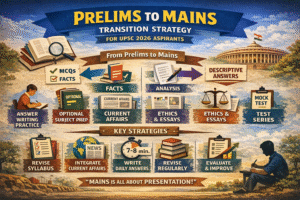Staying updated with current affairs is one of the most challenging yet crucial parts of UPSC Civil Services preparation. The exam’s dynamic nature requires aspirants to connect daily news with static concepts, understand government policies, and link national and international events to the syllabus. However, with expert coaching support, especially in Ernakulam, aspirants can approach this vast area systematically and effectively.
This article explains how UPSC coaching centers in Ernakulam simplify current affairs preparation through structured teaching, curated materials, revision strategies, and exam-oriented guidance.
Why Current Affairs Matter in UPSC Preparation
Current Affairs play a decisive role across all three stages of the exam:
Prelims Exam: Around 25–30% of GS Paper I questions are directly or indirectly based on current events, government schemes, reports, and environment-related topics.
Mains Exam: Questions in GS Paper II (Polity, Governance, IR), GS Paper III (Economy, Environment, Science & Tech), and even Essay Papers often stem from current developments.
Interview Stage: The UPSC Personality Test focuses heavily on a candidate’s awareness of national and international issues, and their ability to analyze them critically.
Without a structured approach, students often get lost in information overload. This is where Ernakulam’s expert faculties make a difference.
Common Challenges Aspirants Face
Reading too many newspapers and magazines without focus.
Difficulty connecting current topics with UPSC syllabus.
Lack of consistent note-making and revision.
Confusion over what to prioritize.
Inability to link current events with static portions of the syllabus.
Ernakulam’s coaching programs resolve these issues with targeted current affairs modules that integrate conceptual learning with daily updates.
How Ernakulam Coaching Centers Simplify Current Affairs Preparation
1. Structured Coverage of Topics
Reputed institutes in Ernakulam, such as Victor Growth IAS Academy, organize current affairs into syllabus-based modules like Polity, Economy, Environment, International Relations, and Science & Technology.
This ensures aspirants focus on what UPSC actually asks rather than reading irrelevant news.
2. Monthly Current Affairs Compilations
Instead of relying on multiple sources, coaching centers provide monthly magazines or PDF handouts that summarize key events, government reports, and analysis from reliable sources like PIB, Yojana, Kurukshetra, The Hindu, and Indian Express.
These compilations include:
Important government schemes and data.
Reports and indices (HDI, CPI, GHI, etc.).
Summaries of Supreme Court and High Court judgments.
Key national and international developments.
3. Integration with Static Syllabus
Faculty members connect each current issue with its corresponding static topic in the UPSC syllabus. For example:
The Digital India Mission is linked to Polity (Governance & e-Governance).
Climate Summits are tied to Environment and Geography.
Economic Surveys are linked to Indian Economy concepts.
This method helps aspirants retain information longer and understand the issue’s holistic context.
4. Daily Discussion Classes
Daily or weekly current affairs sessions ensure students don’t miss important topics. In these sessions:
Editors’ picks from The Hindu and PIB are analyzed.
Complex issues are broken down into simple, exam-ready points.
Students are taught how to write GS Mains answers and Prelims-oriented MCQs from current events.
5. Weekly and Monthly Tests
Regular Current Affairs Tests evaluate learning progress. These include:
Prelims Practice: Objective-type MCQs based on recent developments.
Mains Practice: 10-mark and 15-mark analytical questions to enhance writing skills.
This ensures consistent revision and retention.
6. Focus on Kerala-Specific Current Affairs
Kerala-centric examples enrich answers in Mains and Interview stages. Coaching institutes in Ernakulam include:
Western Ghats Conservation and Environmental Issues.
Kerala’s decentralized governance and welfare programs.
Disaster management case studies (floods, landslides).
Fisheries, tourism, and blue economy initiatives.
These local examples give aspirants an analytical edge during UPSC Mains and interviews.
7. Simplified Notes and Mind Maps
Complex issues like “Climate Change Negotiations,” “Data Protection Bill,” or “Fiscal Federalism” are explained using infographics, flowcharts, and mind maps.
These visual tools make revision faster and improve recall during the exam.
8. Daily Answer Writing and Editorial Analysis
Students are trained to summarize newspaper editorials in 150–200 words to develop concise writing skills.
This helps in Mains answer writing and Essay preparation by improving articulation and analytical depth.
9. Regular Revision Strategy
Institutes follow the 3R rule — Read, Revise, Rehearse:
Read: Daily curated updates from reliable sources.
Revise: Weekly and monthly summaries.
Rehearse: Practice tests and answer writing sessions.
By the time of Prelims, aspirants have already revised key current affairs 3–4 times.
10. Mentorship and Doubt-Clearing Sessions
Individual mentoring helps students understand complex policy issues like the Union Budget, Economic Survey, or environmental treaties.
Mentors guide students on what to focus on and how to write balanced opinions in the Mains exam.
Examples of Current Affairs Topics Explained in Ernakulam Classes
| Category | Sample Topics |
|---|---|
| Polity & Governance | Uniform Civil Code, Judicial Reforms, Simultaneous Elections, Digital India, Data Protection Bill |
| Economy | Union Budget 2025, GST Council Reforms, Inflation Control, India’s Start-up Ecosystem |
| Environment | COP 30, Renewable Energy Targets, Western Ghats ESA, Plastic Waste Management Rules |
| Science & Tech | Chandrayaan-3, 5G Expansion, Quantum Mission, AI Ethics |
| International Relations | India–ASEAN ties, India–Russia oil trade, India–US tech diplomacy, Indo-Pacific Strategy |
| Kerala-Specific | Coastal Zone Management, Kudumbashree model, Disaster resilience programs, Blue Economy Mission |
Study Plan for Current Affairs (Integrated with Coaching)
Daily Routine:
Read coaching-provided newspaper summary (20–30 minutes).
Highlight important issues for note-making.
Practice 5–10 current affairs-based MCQs.
Weekly Routine:
Attend discussion classes.
Revise weekly compilation.
Attempt a mini-test (20–25 questions).
Monthly Routine:
Read the monthly magazine provided by the institute.
Attempt one full-length Prelims current affairs test.
Write one Mains-based answer paper (5–10 questions).
Benefits of Coaching-Based Current Affairs Preparation in Ernakulam
Saves time by providing filtered, exam-relevant content.
Integrates static + current topics for conceptual clarity.
Builds consistency through daily and weekly discipline.
Offers expert guidance for Mains and Interview stages.
Focuses on Kerala and South India-related examples.
Affordable and accessible programs with personalized mentoring.
Common Mistakes to Avoid
Reading multiple newspapers without consolidation.
Ignoring revision of old topics.
Not linking current issues with the syllabus.
Over-relying on magazines and neglecting analysis.
Focusing only on Prelims and not on Mains perspective.
Conclusion
Current Affairs is not just about reading the news — it’s about understanding the link between policy, governance, and society. Coaching institutes in Ernakulam simplify this complex process through structured notes, weekly discussions, mock tests, and revision cycles.
With expert faculty guidance, Kerala-centric analysis, and consistent practice, aspirants can transform current affairs from a burden into their strongest scoring area in both UPSC Prelims and Mains.
Ernakulam’s disciplined and focused coaching ecosystem ensures that every student stays informed, confident, and exam-ready.

